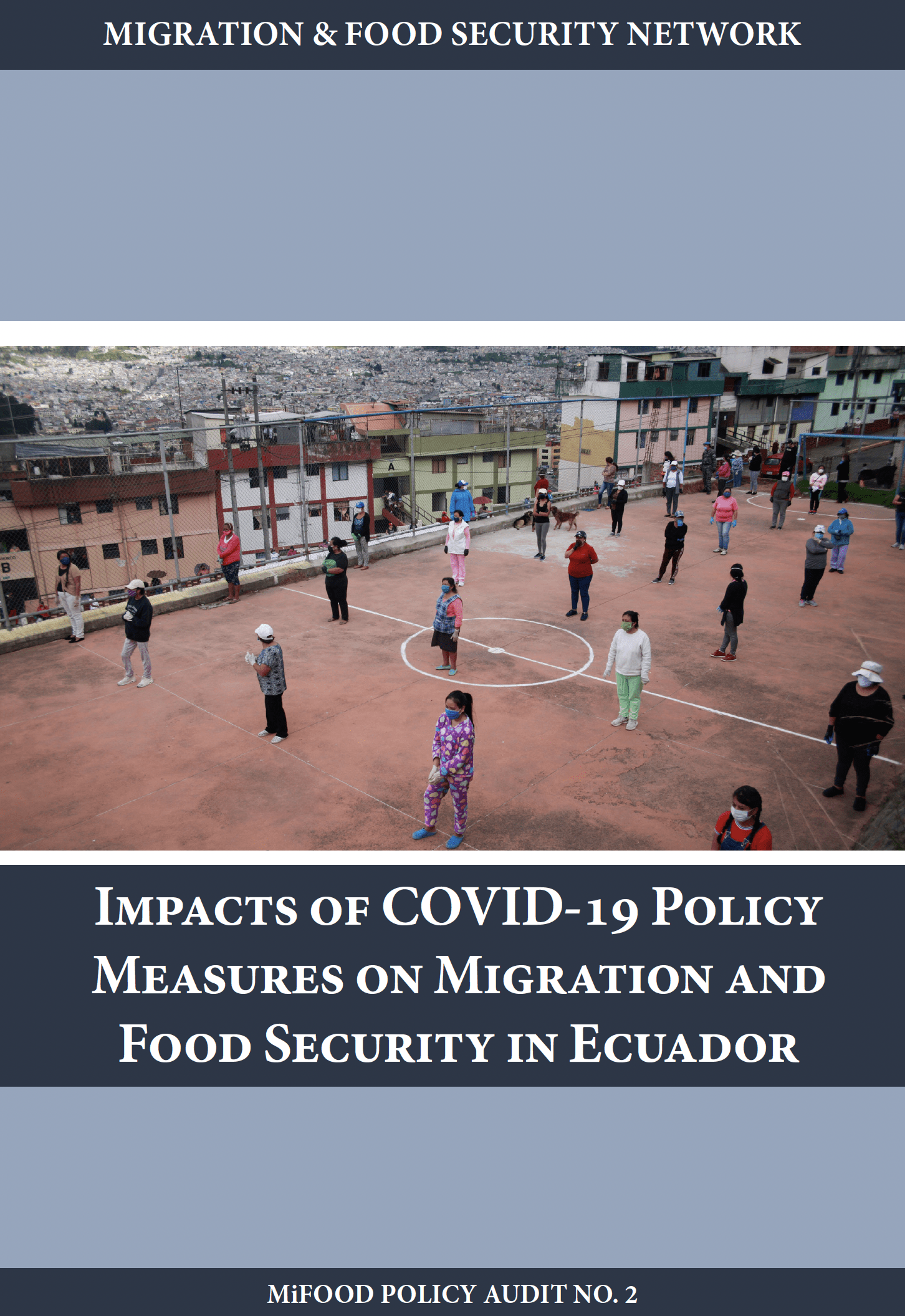The COVID-19 pandemic had profound effects on Ecuador, exacerbated by pre-existing weaknesses in the public health system, economic austerity policies, and social inequalities. The reliance on containment measures, combined with insufficient social support, resulted in severe economic and social decline. Migrants, already a vulnerable group, were further marginalized during the pandemic, facing exclusion from social protection programs and increased food insecurity. This report examines the impacts of COVID-19 policy measures on migration and food security in Ecuador, focusing on urban contexts, particularly the capital city of Quito. The findings underscore the need for more integrated research and policy approaches that address the specific conditions of migrants and other vulnerable groups. Future policy efforts should focus on improving social protections, enhancing access to healthcare and vaccines for all populations, and addressing the underlying inequalities that exacerbated the impacts of the pandemic in Ecuador.

